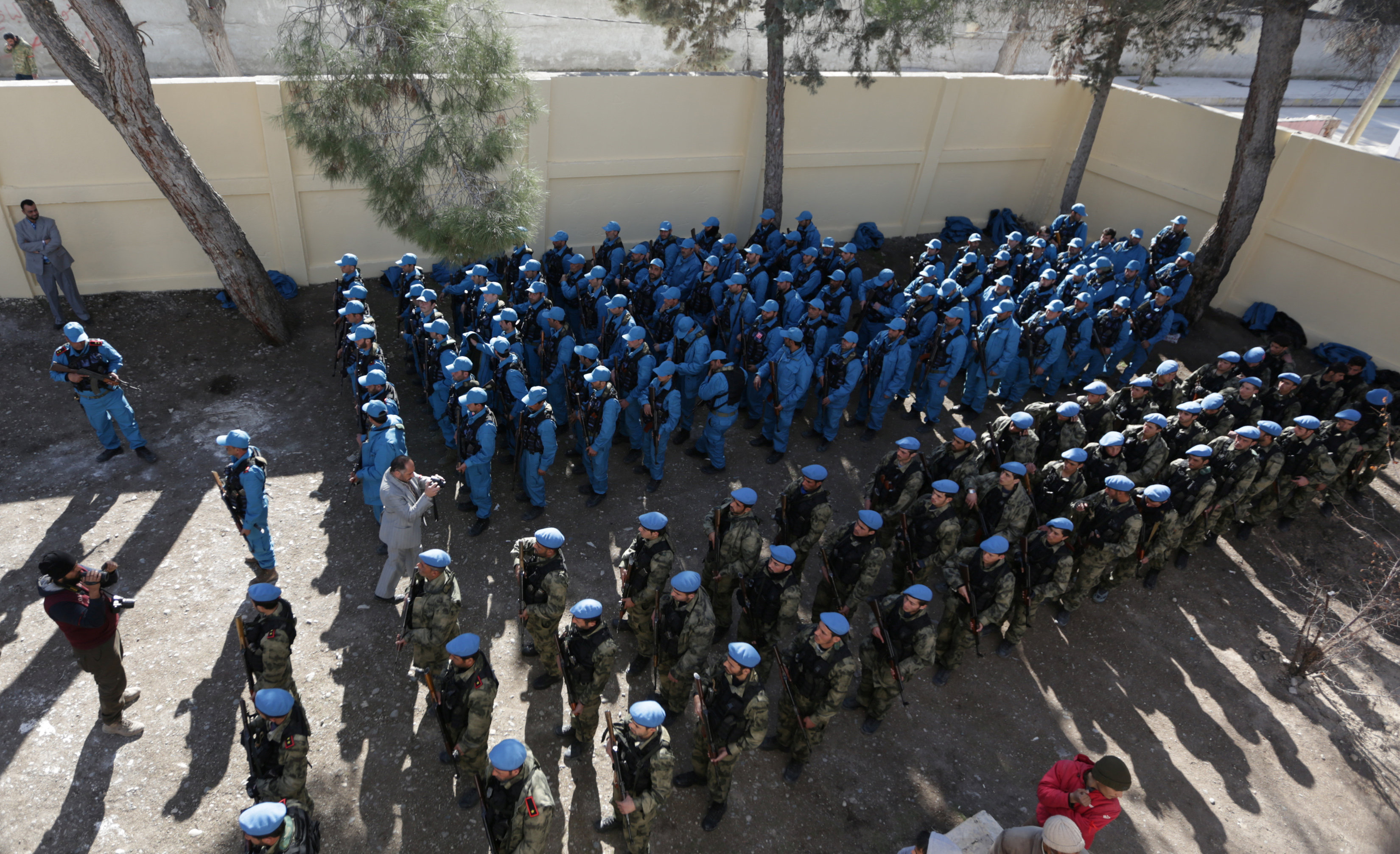
By John Davison and Tom Perry
BEIRUT (Reuters) – The Syrian army signaled on Thursday it would press on with operations against Islamic State northeast of Aleppo, in a veiled warning to Turkey which backs a separate military campaign in northern Syria.
Syrian government forces have rapidly driven Islamic State back in the last two weeks, advancing to within 6 km (4 miles) of the city of al-Bab that the jihadists are fighting to hold.
The army’s gains risk sparking a confrontation with Turkey, which has sent tanks and warplanes across the border to support Syrian insurgents who are trying to seize al-Bab in a separate offensive.
Turkey’s offensive, launched last year, aims to drive both Islamic State and Syrian Kurdish fighters away from its borders, as Turkey sees both groups as a security threat.
Syria’s military general command said government forces and their allies had recaptured more than 30 towns and villages from Islamic State, and a 16 km (10 mile) stretch of the highway that links Aleppo to al-Bab to the northeast.
“This achievement widens the secured areas around Aleppo city and is the starting point for (further) operations against Daesh (Islamic State),” a military spokesman said in a statement broadcast on state TV.
The military “confirms its commitment to … protecting civilians and maintaining the unity of the territory of the Syrian Arab Republic,” the statement added, in a remark apparently directed at Turkey.
Turkey’s offensive has brought the rebel factions it backs – some of which have also fought against President Bashar al-Assad’s forces in Aleppo – to the outskirts of al-Bab, according to a group that monitors the war.
Ankara last week denied that Turkey would hand over al-Bab to Assad after driving out Islamic State.
A source in the military alliance fighting in support of Assad told Reuters on Wednesday the Syrian army aimed to reach al-Bab and was ready “to clash with the FSA fighting” alongside the Turkish army if necessary.
Turkey launched its “Euphrates Shield” campaign in Syria to secure its frontier from Islamic State and halt the advance of the powerful Kurdish YPG militia. Helping rebels to topple Assad is no longer seen as a priority for Ankara.
The Euphrates Shield campaign has carved out an effective buffer zone controlled by Turkey-backed rebel groups, obstructing the YPG’s plans of linking up Kurdish controlled areas in northeastern and northwestern Syria.
The YPG, backed by the United States, is separately also battling Islamic State, and Washington’s backing for the Kurdish fighters has created tension with Turkey.
ISLAMIC STATE ASSAULTS
Fighting between Syrian forces, backed by Russia, and Islamic State has meanwhile intensified elsewhere in the country in recent weeks, with the group on the offensive in several areas of Syria while it is driven back inside its Mosul stronghold in neighboring Iraq.
Government forces clashed with the militants west of the historic city of Palmyra late on Wednesday, in an attempt to recover ground recently lost, the Syrian Observatory for Human Rights monitoring group reported.
The army made some progress and took over farmland around the village of al-Tayas, 50 km (30 miles) west of Palmyra and near the T4 air base, but dozens of Syrian troops have been killed in the latest clashes in the area, the British-based Observatory said.
The jihadists seized Palmyra and some nearby oil fields in December for a second time in the nearly six-year Syrian conflict. They had been driven out by the army and its allies in March.
Further southwest the army fought Islamic State near the al-Seen military airport, the Observatory said.
Islamic State on Sunday launched an attack on the airport, 70 km northeast of Damascus, it said, adding that dozens of Syrian soldiers and militants had died in several days of fighting.
Government forces have recaptured at least one village in the area, the Observatory and a military media unit run by Assad’s ally Hezbollah said.
Islamic State fighters have also been attacking the remaining pockets of government-held territory in the city of Deir al-Zor in eastern Syria, long besieged by the group. Heavy Russian air strikes have targeted Islamic State in the area. Deir al-Zor province is almost entirely held by Islamic State.
(Reporting by John Davison and Tom Perry; Editing by Tom Heneghan and Dominic Evans)












